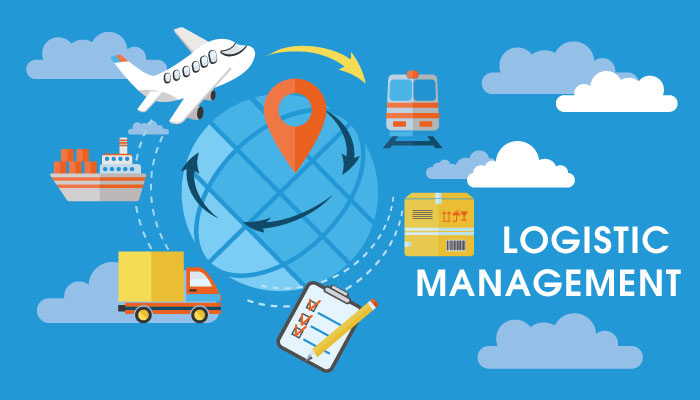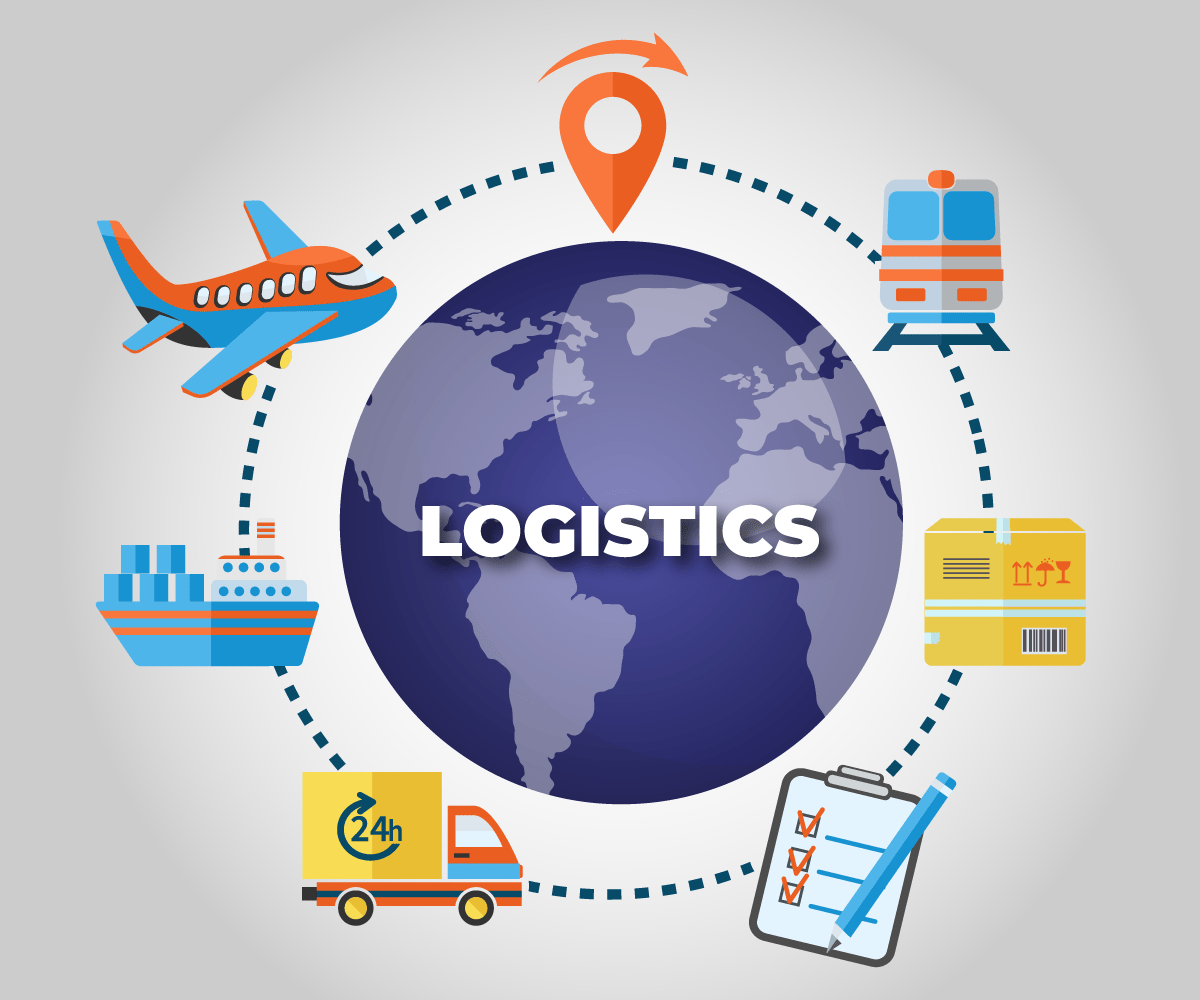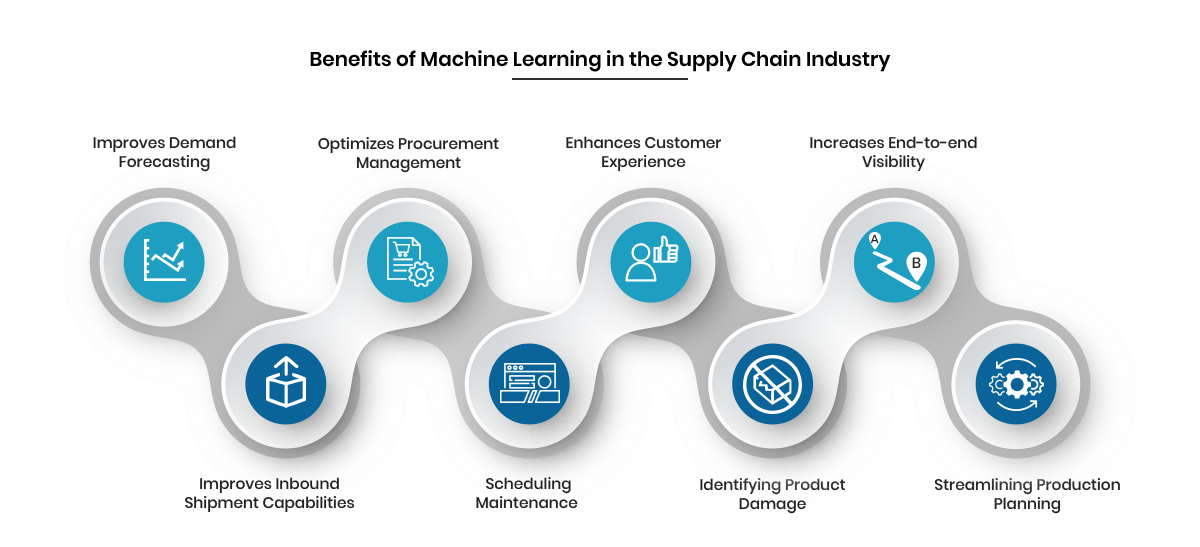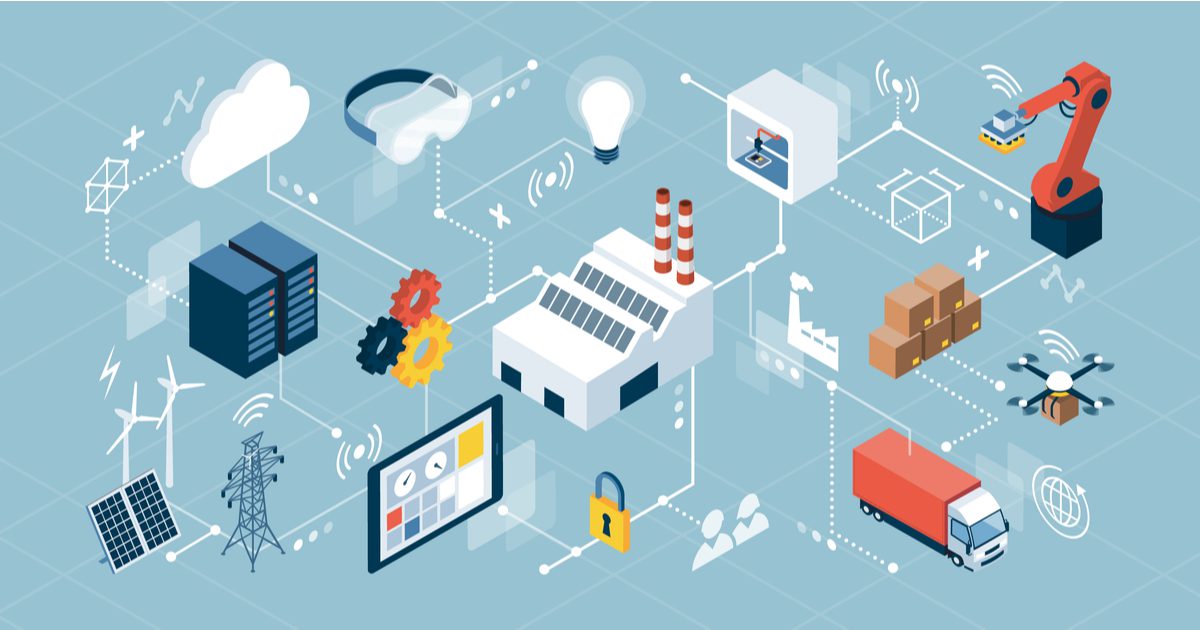6 min to read
How To Mitigate The Risks of Logistic Management?

Logistic Management
At its core, logistics is all about managing the flow of goods and materials. This can be anything from inventory control to transportation and distribution. It's a vital part of any business, and it's also one of the most complex and risky.
There are a lot of things to consider when it comes to logistics, and if you're not careful, you could end up making some costly mistakes. That's why it's important to know what to watch out for and how to mitigate the risks. In this post, we'll take a closer look at some of the biggest risks in logistic management and how to avoid them.
CodeDesign is a leading digital marketing agency ranked #1 in Lisbon, Portugal. You could work with us to accelerate your business growth.
What Is Logistic Management?
Imagine this: you're responsible for getting a shipment of goods from Point A to Point B. It's your responsibility to make sure everything goes smoothly, and that the goods arrive on time and in good condition.
That's what logistic management is all about. It's the process of planning, organizing, and controlling the flow of goods and materials from the supplier to the customer. And it's a complex process, fraught with risk.
So what are some of the risks involved in logistic management? Well, there's the risk of something going wrong with the shipment, for one thing. There's also the risk of losing or damaging goods in transit. And then there's the risk of not meeting delivery deadlines.
It's important to be aware of these risks and take steps to minimize them. That's where logistics professionals come in—they're experts at minimizing risk and ensuring a smooth delivery process.
What Are the Risks of Logistic Management?
You're probably aware of the many risks that come with running a business. But when it comes to logistics, it's easy to overlook some of the potential dangers.
For starters, there's the risk of losing or damaging goods in transit. This can be disastrous for a company, not to mention costly. There's also the risk of theft, which can be a major headache and dent your bottom line.
Then there are the risks associated with storage: fire, water damage, pests, you name it. All of these can wreak havoc on your inventory and cause serious financial damage.
It's important to be aware of these risks and take steps to mitigate them. That's why it's critical to have a strong logistics management plan in place. With the right plan in place, you can minimize the risks and keep your business running smoothly.
How Can You Mitigate the Risks of Logistic Management?

Mitigate The Risks of Logistic Management?
So you understand the risks of logistic management, but what can you do to mitigate them? Here are a few tips:
1. Make sure you have a good understanding of your supplier's safety and quality procedures.
2. Require your supplier to carry adequate liability insurance.
3. Require your supplier to have a safety program in place that meets or exceeds your own safety standards.
4. Regularly audit your supplier's safety and quality procedures.
5. Maintain up-to-date contact information for your supplier, so you can easily get in touch if there's a problem.
Machine learning and big data can help companies predict more accurate ETAs

Machine learning logistic management
You may have heard about the importance of machine learning and big data when it comes to logistics. The basic idea is that these technologies can help companies predict more accurate ETAs.
But what does that mean for you? It means that you can be more confident in the delivery times that you're quoting your customers. You'll be able to plan your production schedules more accurately, and you'll be able to make better decisions about where to allocate your resources.
All of this translates into a better customer experience, and that's something we're always striving for here at ABC company. So if you're looking for a partner that can help you streamline your logistics operations, we'd love to talk to you.
How Can You Streamline Your Logistic Management Process?
You're probably wondering how you can streamline your own logistic management process. Luckily, there are a few things you can do to make things a little smoother.
First, make sure you have a good inventory management system in place. This will help you keep track of what you have and what you need, so you don't order too much or too little of anything.
Second, create a process for handling returns and complaints. This will help you quickly and efficiently deal with any problems that come up.
Third, establish relationships with reliable suppliers. This will ensure that you always have access to the materials you need, when you need them.
By following these tips, you can help make your logistic management process a little bit easier and a lot more efficient.
Reliability, Availability, and Maintainability (RAM Analysis)
When it comes to logistic management, reliability, availability, and maintainability (RAM) analysis are three key factors that you need to take into consideration.
Reliability is all about making sure that your systems are up and running when you need them. Availability is about ensuring that your resources are there when your customers need them. And maintainability is about being able to quickly and easily keep your systems up and running.
If you're not doing a RAM analysis, you're putting your business at risk. You need to make sure that your systems are reliable, available, and maintainable if you want to keep your customers happy and your business running smoothly.
Current trends in logistics that will affect your company
It's important to be aware of the current trends in logistics so that you can make informed decisions about how to manage your company's shipping and delivery. Here are a few things you should be keeping an eye on:
1. The growth of e-commerce is changing the landscape of the shipping industry. More and more consumers are buying products online, and that means that the demand for shipping services is increasing.
2. The rise of robotics and automation is having a big impact on the logistics sector. Robots are being used to pack and ship products, which is helping to speed up the process and reduce costs.
3. The implementation of driverless cars is going to have a huge impact on the way goods are transported. Driverless cars will be able to navigate through traffic and deliver goods to their destination without any human assistance. This could revolutionize the logistics industry!
IoT, sensors give logistics providers more visibility into inventory

IOT sensors for logistic management
As a logistics provider, you're always looking for ways to increase your visibility into inventory. And that's where the power of IoT and sensors comes in.
With the right tools in place, you can get real-time updates on the location of your inventory, as well as any changes or discrepancies. This helps you to identify potential problems early on and take corrective action before they have a chance to cause major disruptions.
Another big advantage of using IoT and sensors is that it gives you a more holistic view of your supply chain. You can see how all the moving parts are interacting with each other and identify areas where improvements can be made.
Overall, using IoT and sensors can help you to streamline your logistics operation, reduce costs, and improve customer satisfaction.
Conclusion
When it comes to logistic management, there are a lot of risks that come with the territory. From ensuring your products are delivered on time to protecting your cargo from theft or damage, there are a lot of things that can go wrong.
That's why it's important to be aware of the risks involved in logistic management and take steps to mitigate them. By understanding the risks and taking the necessary precautions, you can minimize the chances of something going wrong and keep your business running smoothly.

About Bruno GavinoBruno Gavino is the CEO and partner of Codedesign, a digital marketing agency with a strong international presence. Based in Lisbon, Portugal, with offices in Boston, Singapore, and Manchester (UK) Codedesign has been recognized as one of the top interactive agencies and eCommerce agencies. Awarded Top B2B Company in Europe and Top B2C company in retail, Codedesign aims to foster personal relationships with clients and create a positive work environment for its team. He emphasizes the need for digital agencies to focus on data optimization and performance to meet the increasingly results-driven demands of clients. His experience in digital marketing, combined with a unique background that includes engineering and data, contributes to his effective and multifaceted leadership style. |

About CodedesignCodedesign is a digital marketing agency with a strong multicultural and international presence, offering expert services in digital marketing. Our digital agency in Lisbon, Boston, and Manchester enables us to provide market-ready strategies that suit a wide range of clients across the globe (both B2B and B2C). We specialize in creating impactful online experiences, focusing on making your digital presence strong and efficient. Our approach is straightforward and effective, ensuring that every client receives a personalized service that truly meets their needs. Our digital agency is committed to using the latest data and technology to help your business stand out. Whether you're looking to increase your online visibility, connect better with your audience, get more leads, or grow your online sales. For more information, read our Digital Strategy Blog or to start your journey with us, please feel free to contact us. |
CodeDesign is leading:
- Digital Agency
- Digital Marketing Agency
- Digital Ecommerce Agency
- Amazon Marketing Agency
Feel free to contact us to see the unprecedented growth of your business.

Add comment ×